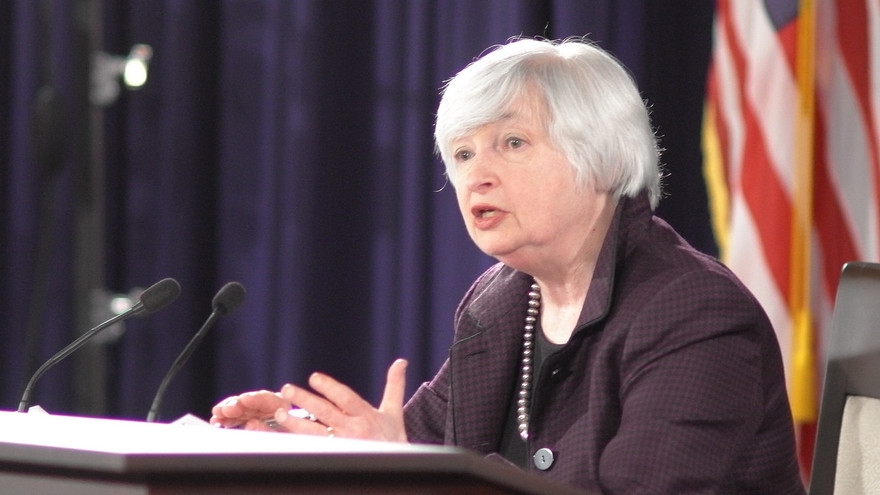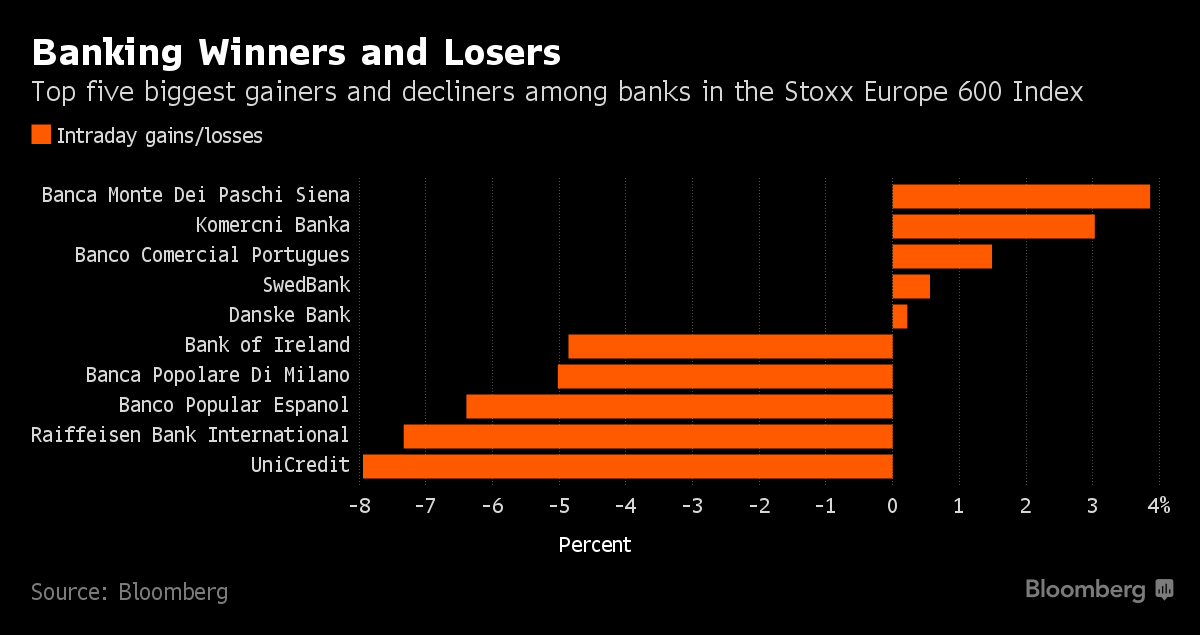- GOLD IRA
- Download Our 2024 Precious Metals IRA Investor’s Guide.
Click Here  Gold IRA
Gold IRA
 Investing
Investing
-
- CRYPTO IRA
- PRICES & STATS
- RETIREMENT PLANS
- BLOG
 Questions? Call (888) 820 1042
Questions? Call (888) 820 1042
U.S. Economic Data and European Banking Stress Tests Underwhelm Again
Disclosure: Our content does not constitute financial advice. Speak to your financial advisor. We may earn money from companies reviewed. Learn more
Last Updated on: 1st August 2016, 01:14 pm
Despite the recent rallies in stock markets around the world, everywhere you look, you see signs of cracks in the fiction that all is well economically around the world. This past week U.S. and British economic data disappointed, European continental banking stress tests failed to fool anyone who actually bothered to pay attention to them, and the Japanese BOJ underwhelmed with their stimulus announcement. This week will likely see Bank of England and Bank of Australia historic new lows in interest rates and Japan's latest announcement of stimulus from their Prime Minister Abe. All of this is likely to continue to be positive for gold prices.
U.S. Economic Data Again Kicks Fed Interest Rate Hike Chances to the Curb
The hits seem to just keep on coming for Janet Yellen and company at the Federal Reserve. Every time she tries to posture the American central bank to be able to raise benchmark interest rates, the results of some Brexit referendum or other unforeseen economic event upset her interest rate apple cart. This time the U.S. economic data itself is the spoiler for Yellen's plans. The national economy only expanded at a paltry rate of 1.2% for the second quarter versus a year earlier. This proved to be abysmally below the 2.6% anticipated growth that the Wall Street Journal polled economists had looked to see from the print. Immediately after the government released the sobering economic data, traders of the Fed Funds futures peeled back their expectations from an 18% chance of a September rate hike to only 12%. After the September meeting, the impending U.S. election will loom large as the next wrench in Janet Yellen's proverbial gears. She just can't seem to catch a break, and gold is loving it.
European Bank Stress Tests Underwhelm Investors
The European Central Bank released its latest ploy to try to settle investors' fears of imminent continent-wide bank failures in the form of system wide bank stress tests on Friday. Unfortunately, the smoke and mirrors failed to fool anyone this time around. Investors actually sold off European banking stocks in the wake of the better than expected bank stress test results. The bank lenders in the more vulnerable peripheral countries of Italy, Spain, and Portugal weighed down the banking index the most. After at first opening stronger on the mostly positive test results, the index dropped as much as 2%. Spanish banks Banco Santander SA declined by 2.9% while Banco Bilbao Vizcaya Argentaria SA plummeted by 4%. Italy's UniCredit SpA fared the worst, plunging by an eye watering over 7%.
These were stunning results given that the stress tests purported to shows that the majority of the banks would have enough capital to weather another banking crisis. Like the Saxo Bank Head of Equity Strategy Peter Garnry quipped, “Investors are skeptical about everything these days. The problem with the stress tests is that they were too soft, only assuming a mild to moderate recession. This means that the data doesn’t tell us much, and it’s not too surprising that most banks passed.” So much for the efforts of Mario Draghi and his shore up confidence campaign over at the European Central Bank.
Japan's Imminent Stimulus Plan Announcement Tipped to Disappoint
Not to be outdone by the Europeans, the Bank of Japan last week attempted some sleight of hand of its own. Bank of Japan Governor Haruhiko Kuroda aimed low in their latest round of easing. This only puts the pressure on Japanese Prime Minister Shinzo Abe to bring out the big guns for so called “bold” fiscal stimulus when he announces the details on Tuesday of an over 28 trillion yen ($273 billion) spending package. This all sounds impressive, but the problem is that markets are already looking to be disappointed. The devil in the details this time is that the spending will most probably be sprinkled over a few years. To make matters worse, the amount of money spent may turn out to be significantly lower than anticipated, per analysts reviewing the upcoming policy announcement.
Banks of England and Australia Interest Rate Cuts Anticipated This Week
In still another telling sign that all is not well in major international economies, investors are looking this week for both the Bank of England and Bank of Australia to cut their already basement level interest rates to still new historic lows. British economic data continues to tank in the wake of the crash in confidence brought on by the Brexit vote to leave the European Union. The latest salvo came from a United Kingdom manufacturing report that showed the sector shrank by a greater amount than originally predicted for July. The hedge funds and other major currency speculators have become more negative on the British pound now than they have been in nearly 25 years in their confidence that the Bank of England will respond this week by slashing interest rates for the first time in over seven years. Sterling has plunged by over 11% versus the dollar since the June 23rd referendum, marking its third consecutive monthly drop against the greenback.
Britain is not the only trillion plus dollar economy preparing to throw out the interest rate anchor. Nomura Bank also predicts that the Reserve Bank of Australia will cut its interest rates to still new all time lows this week. The Australian cut will come amid the Australian Performance of Manufacturing Index having notched its string of uninterrupted growth to 13 months, the series' longest period of expansion since August of 2004. This interest rate cut amid an apparently improving economy in Australia should be enough to warn you that all is not well in the world's economics and behind the scenes of the seemingly robust markets. Hold on to your gold retirement account assets.



 Silver
Silver Gold
Gold Platinum
Platinum Palladium
Palladium Bitcoin
Bitcoin Ethereum
Ethereum








